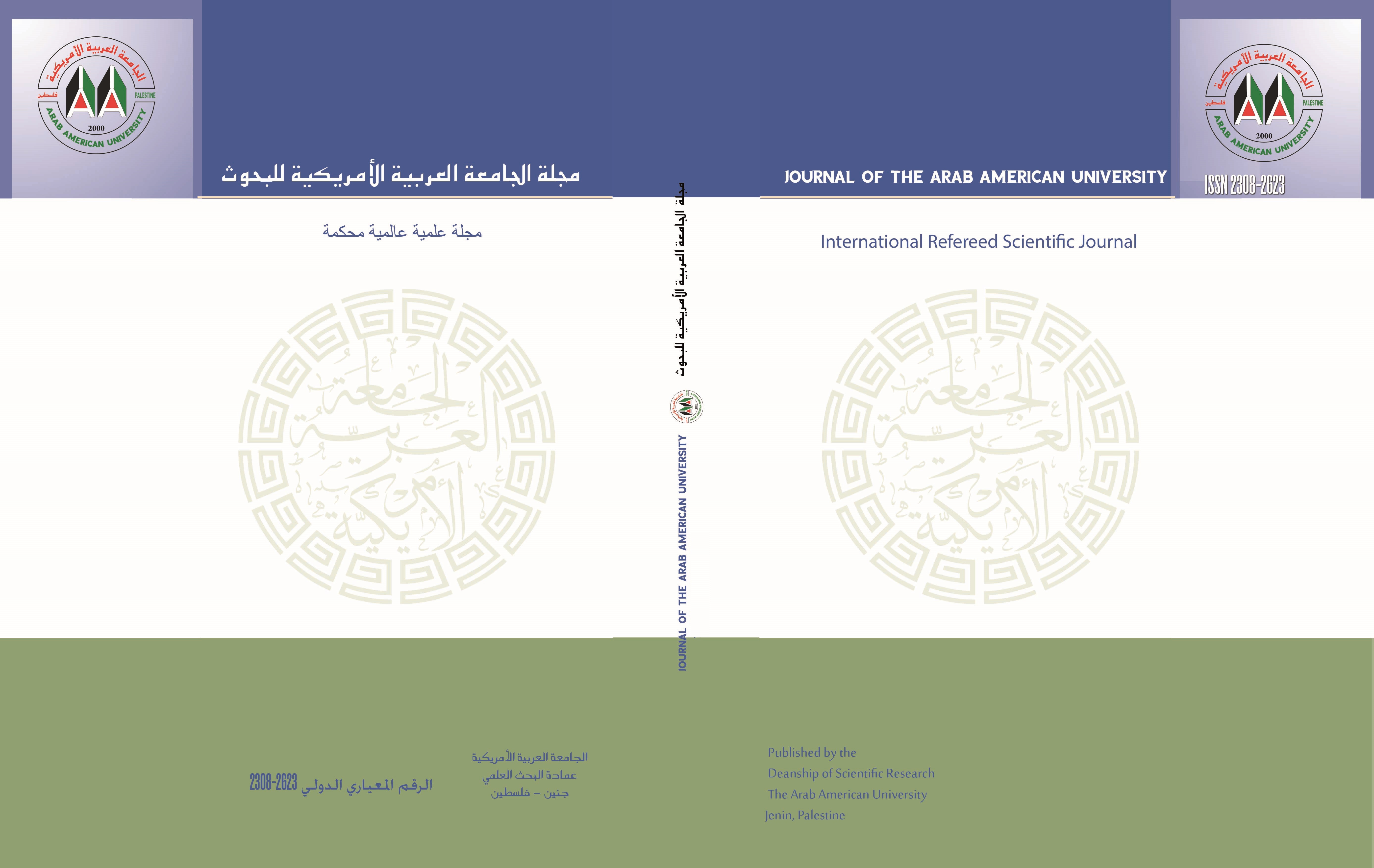Journal of the Arab American University مجلة الجامعة العربية الامريكية للبحوث

Abstract
The study aimed at identifying how family-owned retail businesses in Ramallah and Al-Bireh Governorate dealt with the Corona crisis (Covid-19). The impacted areas demonstrated in the study are human resources and marketing. The study used the descriptive-analytical approach, and the questionnaire as a tool to collect data. The study population was made up of family businesses in the retail trade, which consisted of (164) companies of the targeted the sector according to the data available at the Chamber of Commerce and Industry of Ramallah and Al-Bireh Governorate. where the method of total survey was used, and thus the questionnaires were distributed to the entire population of the study, and (100) questionnaires were retrieved and were suitable for analysis. The study reached many results, the most important of which are: Firstly, regarding the field of human resources, companies have been concerned with instructing and training their human resources about how to deal with the crisis. The companies have not reduced the salaries and wages of their employees, as well as they have not abandoned any of their managers or postponed the payment of their wages. Secondly, in the field of marketing, companies reduced the quantities of products and relied on products with new specifications to suit the circumstances of the crisis. They also reduced the prices of some commodities and focused on lower-priced goods. In addition, many family businesses have relied more than before on the online-marketing for their products. The offers system was used to promote the products to a greater degree than before, thus, competition increased between companies during the crisis. However, the impact of competition was negative on most family businesses. The study has provided several recommendations. First, it is necessary to pay attention to the strategic planning through the development of long-term strategic plans with different dimensions to ensure the readiness of companies to avoid failure when crises occur. Second, it is essential to communicate with the workers to calm their concerns and keep them informed of the situation on an ongoing basis so that they are ready to overcome the crisis. Third, there should be more focus on continuing education and investing in e-marketing. Finally, family businesses are advised to monitor markets by searching for and exploring new markets, providing products or services with unique characteristics, and adapting their pricing and distribution strategies in line with the nature and conditions of the crisis.
Recommended Citation
Wahaish, Fatima and Darwish, Nidal
(2023)
"How did family businesses deal with the Corona crisis (Covid-19) in the field of human resource management and marketing? A case study of Palestinian family businesses,"
Journal of the Arab American University مجلة الجامعة العربية الامريكية للبحوث: Vol. 9:
Iss.
2, Article 6.
Available at:
https://digitalcommons.aaru.edu.jo/aaup/vol9/iss2/6

